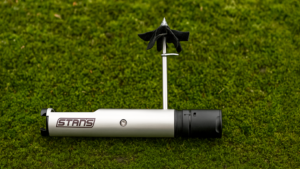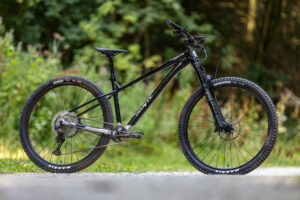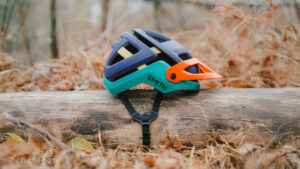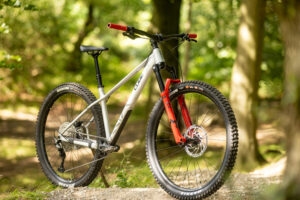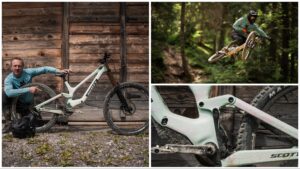Britol's Starling determined to prove that steel-tubed bikes can be enduro high flyers
Starling Murmur Factory 29 first ride
Starling Murmur Factory 29 is made from Reynolds 853 tubing, TIG welded in Taiwan, delivering 140mm travel through its single pivot suspension.
>>> The new wave of steel frame full suspension bikes
Starling Murmur Factory 29 need to know
- Reynolds 853 steel TIG welded frame, with 140mm travel
- Built for 29in wheels with clearance for 2.5in tyres
- Aggressive enduro bike geometry, long, low and slack
- £1,850 frame and shock only
Steel is great stuff to make hardtails from because frame builders can take advantage of the material’s relative flexibility compared to aluminium. That means the back end has some give in it to improve comfort. Steel comes in regular round tubing, too, it’s relatively available, relatively affordable and pretty simple to cut and join, using either welding or brazing. All of which makes it a firm favourite for small bike brands like Starling. So steel works for hardtails, but does it make sense for full-suspension bikes, where you don’t need that natural compliance? Starling sent us the Murmur to find out.
Starling Cycles is Joe McEwan, and the company HQ is based at the bottom of his garden, where Joe has spent the last five years hand-welding frames. That’s a slow process for one man, so this year Starling is expanding, sub-contracting construction to the Far East and creating this Factory version of the hand built Murmur, and consequently dropping the price by some £500 (the shed-made Murmur costs £190 more but doesn’t come with a shock, while the Factory does).
Up front, Starling recommends you spec a 150mm fork – the bike we tried came with a DVO Beryl. This steel chassis then rolls on 29er wheels, and has clearance enough for 2.5in tyres, Starling says. It comes in just two sizes, many, many colours, and costs £1,850 for frame and RockShox Deluxe RT3 Debonair shock. That’s not cheap, especially given it’s not made in the UK, although we should point out you can still get a Bristol-built frame if you’re prepared to wait.
Starling Murmur Factory 29 first ride
Clapping eyes on the Murmur Factory for the first time, there’s no doubt it’s a steel bike, with skinny straight tubes, X shaped bracing on the rear triangle and none of the seamless sculpting we’re accustomed to form hydroformed alloy or moulded carbon. It’s all very steampunk, thanks to those long, copper-pipe thin seatstays and external cable routing Is it handsome? I’m not so sure, but who am I to judge, nor do I care as long as it rides well. Even when yo can’t see the bike, because you’re on it, it’s hard to escape the ferrous frame matter. It’s a heavy bike – not a pig to climb by any stretch, but you can feel the extra weight of the Murmur whenever you steer a course uphill.
The Murmur saves itself with a great riding position though, which works both uphill and downhill. The super-long chainstays mean you’re never in danger of looping out on a steep climb, and when descending it makes for one hell of a stable platform to point down steep techie sections — the bike seems to stay composed and in control where others might pinball in all directions, tracking the ground when the ground is doing everything it can to throw you off. The Murmur’s geometry is hard to fault, with a relaxed head angle and a low bottom bracket helping you push in for grip on loose corners. And in the era of e-bikes, we’ve learnt just how beneficial weight can be in helping suspension perform well, perhaps it’s no surprise the Murmur works best on the descents.
The Murmur is fast and sure-footed, no doubt about it, and would work well as an enduro race bike, provided you’re fit enough to haul its hefty weight up the hills all day. As a trail bike though, it’s too heavy to really enjoy riding for hours on end, and flatter, contouring trails really don’t play to the bike’s strengths. Starling also needs to increase its size range, with a bigger option for riders over 6ft. Does steel work in a full suspension bike then? I think the material choice is immaterial; you can build compliance or stiffness into any bike, so as usual it comes down to whether any individual bike is good to ride. The Murmur is good, although I’d really love it if it was a couple of pounds lighter.










